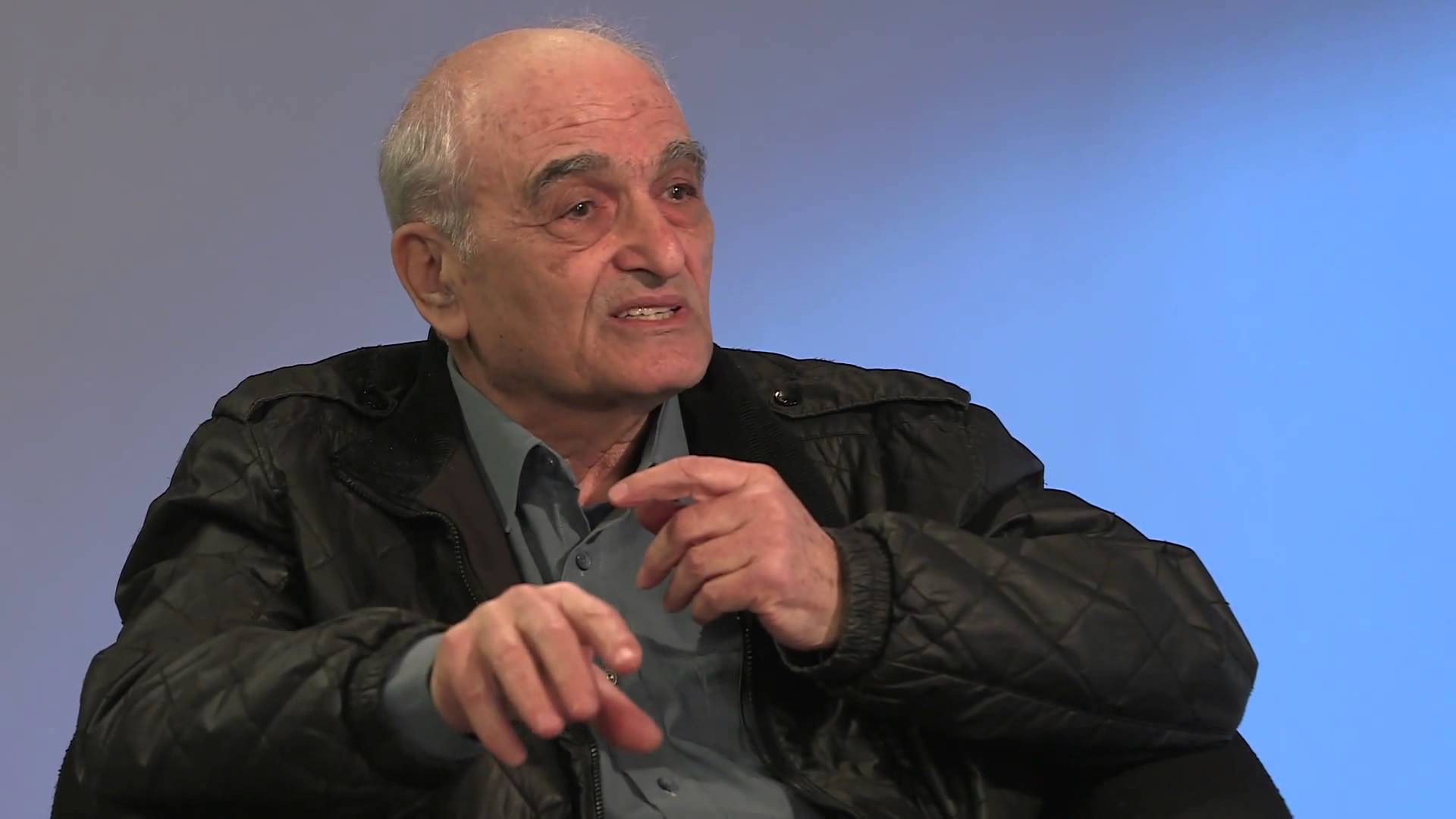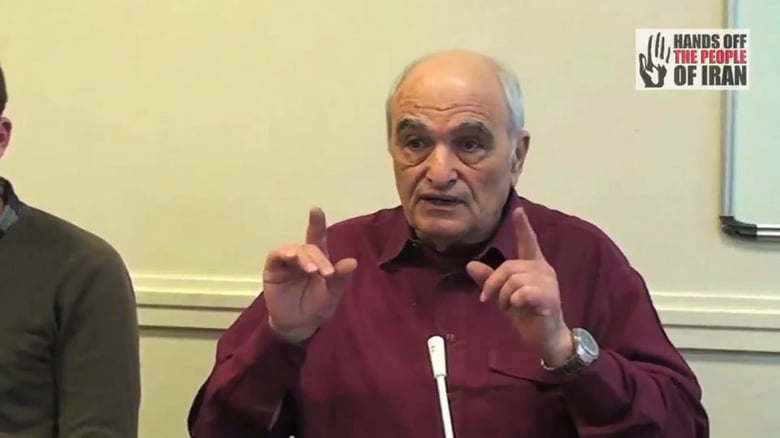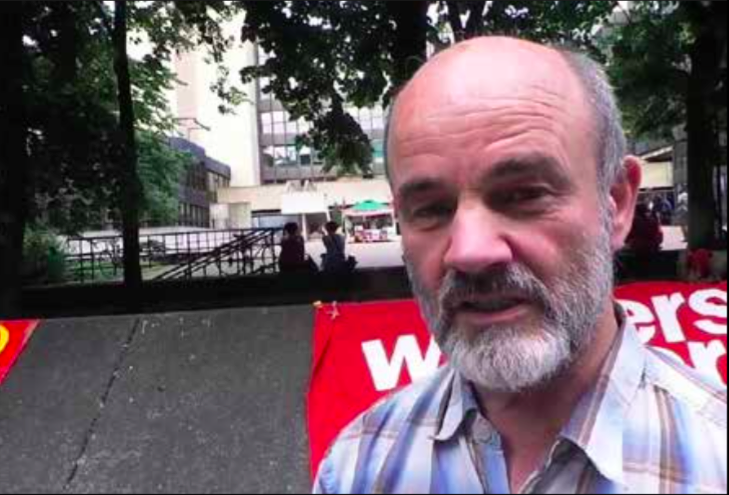Communication from Moshé Machover to the legal queries unit
Comrade Machover’s excellent letter is also available in PDF format here.
16 October 2017
I refer to your letters of 3 and 6 October 2017, excluding me from the Labour Party on allegations that I am in breach of Rule 2.1.4.B.
In the alternative you appear to suggest that if I were not expelled I would face investigation for breach of Rule 2.1.8 for alleged antisemitism. I profoundly disagree that I am in breach of either rule.
I have taken legal advice before writing this letter and should make clear at the outset that I reserve all my legal rights in connection with the false statements that have been made against me and which have been repeated in your correspondence to me, the fairness of the procedure you have adopted and my right to freedom of political speech.
Introduction
- First, I must say that I find the lack of precision in the words you use in making such serious allegations to be unhelpful and confusing. In your letter of 3 October you refer to an “apparently antisemitic article” (suggesting you have come to a decision about the content of the article in question) but in your letter of 6 October you refer to an “allegedly antisemitic article” (suggesting no decision has been made about the content).
- Furthermore, in your letter of 3 October, after referring to “an apparently antisemitic article “(i.e. a single article) you go on to state “these articles” (i.e. more than a single article) are antisemitic. Which is it? You are making the gravest of allegations against me, yet you are not precise in what is being alleged against me and do not identify with clarity whether it is a single article or an array of articles upon which I am being accused and judged. The copy articles (plural) referred to in your letter of 3 October in Section 1 are dated 15 December 2016 and 21 September 2017. You do not identify the precise words you say are antisemitic. Please do so.
- Indeed, it seems you have been selective in what you have chosen to disclose to me, as the article of 15 December 2016 has “p7” in the bottom right hand corner and the article of 21 September 2017 has “p3” in the bottom right hand corner. I assume you have had at least 7 pages of documents passed to you by my anonymous accuser. I refer below to my right to know my accuser and the case I am facing.
Personal background
- I am an Israeli citizen and a naturalised British citizen.
- I have long been an Israeli dissident, holding internationalist socialist views, and hence am an opponent of the Zionist project and ideology.
- Since my arrival in Britain, in 1968, I have continued my political activity, which has mainly taken the form of giving talks and writing articles advocating my views on Zionism, the Israeli–Palestinian conflict and the wider region of the Middle East. I have been happy to appear at numerous meetings organised by a variety of organisations – such as student socialist societies and Palestine Solidarity groups – and to be interviewed by and publish articles in various publications. My only condition is that I am allowed to speak freely and that my articles are not censored.
- In 2007 I came across a leftist group calling itself the Communist Party of Great Britain (‘CPGB’), of whose existence I had not been previously aware. They soon invited me to publish articles in their weekly journal, theWeekly Worker (‘WW’). I was pleased to discover that the WW has a very liberal publishing policy and provides space for a variety of radical left views, without insisting that they agree with the CPGB political line, or subjecting them to political censorship. I was therefore happy to continue publishing articles in the WW and am of course grateful to the CPGB for its kind hospitality. Likewise, I was happy to speak at various meetings organised by them, just as I have been happy to speak at meetings organised by various other groups and organisations.
Your allegations in relation to CPGB and LPM
- I have never joined the CPGB as a member, as I do not wish to subject myself to their organisational discipline, and have several political differences with them.
- I am not, and have never been, a member of the organisation known as Labour Party Marxists. I have never written any article for their publications. In September 2017 they contacted me and asked my permission to reprint an article (in fact a edited version of a talk) by me, originally published in May 2016 in the WW http://weeklyworker.co.uk/worker/1107/dont-apologise-attack/. They told me that they intended to distribute or sell a publication containing the reprint in the fringe of the Labour Party conference that took place in Brighton during that month. I willingly gave them my permission – as I would do, and have often done, to any publication that is prepared to disseminate my views. I am grateful to the LPM for distributing my article.
- The evidence provided for my alleged “support” for the CPGB or LPM does not indicate such support, as further addressed below.
- In any event, I am not aware that, even if I were a supporter of either organisation, this would be a breach of the rules – given that no evidence has been provided to me that these are organisations proscribed by the Party under the rules.
- I challenge the purported evidence that you appear to rely on that I am a supporter of those organisations. I challenge its validity in the strongest possible terms, as all I have done is exercise my freedom of speech under their aegis and for these reasons:
(i) Section 1 in your letter of 3 October is an article published by LPM last month, but I did not write this article for LPM. See 6 above.(ii) Section 3 shows that I spoke at a session of the Communist University 2016, co-sponsored by CPGB and LPM, but the evidence cited notably does not claim that I am a supporter (or member) of either organisation and, on the contrary, includes a disclaimer that ‘the views in these videos do not necessarily represent the views of either organisation’.
The fact I spoke at that educational meeting on an issue within my expertise is in principle, as far as Party rules are concerned, no different from David Lammy speaking at the Conservative Party’s fringe event on justice issues together with the current Tory Justice Minister https://www.politicshome.com/news/uk/political- parties/conservative-party/theresa-may/opinion/politicshome/89397/tory- conference (scroll down); and does not make me a supporter of those organisations any more than speaking at the above event makes David Lammy a supporter of the Conservative Party.
It is in fact quite common practice for Party members, including senior ones, to speak at meetings of other parties, including rival ones. As two out of innumerable examples, I cite the above and the recent appearance by Lisa Nandy (Labour MP) with Caroline Lucas at a Compass fringe meeting at the Labour Party conference, talking about a Progressive Alliance:https://www.compassonline.org.uk/events/alliance-building-for-a- progressive-future-what-next/The evidence goes on to display an obituary by me that was published in WW (December 2016); and a comment published in WW that refers to what I said at a meeting that I attended (March 2016).
The fact that I attended such a meeting does not make me a supporter of the CPGB, nor does anything the article says about me give any such indication. This applies also to the fact that the author of the comment in question refers to me as ‘a friend of the CPGB’. Calling someone who shares a platform with you a “friend” is an accepted form of normal courtesy, such as when Jeremy Corbyn referred to a representative of Hamas as a “friend”, or when a barrister refers in court to another barrister – who may indeed be her opponent – as “my learned friend”.
- It is clear that the purported evidence you have presented is nugatory; and cannot possibly support the arbitrary step you have taken against me: expulsion without a hearing or proper enquiry.
- On the contrary, presenting such material as “evidence” for my alleged guilt is evidence for something quite different: an extremely dangerous and reprehensible attempt to restrict my freedom of speech, as well as that of other members who hold legitimate critical views on Israel and Zionism, views that are now gaining wide support in the Labour Party, as shown by events at the recent Party conference.
- I am led to this conclusion by the fact that in your letter of 3 October you have mentioned prominently, and without expressing any reservation, despicable and utterly false insinuations of “antisemitism” made against me by anonymous persons. Your letter quite wrongly implies there is some merit in the complaints you have received, by referring to my above-mentioned article reprinted by LPM as being ‘apparently antisemitic’. There is no antisemitic content in that article and I am deeply offended and disturbed that you have made this false and scurrilous allegation against me. My article is in fact a serious discussion, extremely critical of Zionism. These insinuations were quite irrelevant to the purpose of your first letter of 3 October, as you admitted, and reiterated in your second letter of 6 October, that they were not a cause of my (unjustified) expulsion. The fact that you included that smear against me in your letter leads me to doubt seriously your good faith.
- I demand a proper apology for that smear you have unnecessarily included in your letter of 3 October, and an immediate rescinding of my expulsion.
Knowing my accuser and disclosure of the evidence against me – Fairness
- I have been advised that, pursuant to the contractual agreement that I as a member of the Labour Party (‘the Party’) have with the Party, any consideration by you as Head of Disputes of allegations made against me must be fair. Further, I understand that the fairness of the procedure the Party must adopt is protected under common law and under Article 6 of the European Convention on Human Rights 1950 (hereafter “ECHR”). Commensurate with ECHR principles and natural justice, the right to be heard and meaningfully respond requires full disclosure of the evidence given by those accusing me.
- The requirement to disclose the full details of the case against me is also reflected in the Report published by Baroness Chakrabarti in 2016. When commenting on the Party’s complaints procedure she wrote:“It is also important that the procedures explain that those in respect of whom allegations have been made are clearly informed of the allegation(s) made against them, their factual basis and the identity of the complainant – unless there are good reasons not to do so (e.g. to protect the identity of the complainant).Baroness Chakrabarti also recommended that the Party:“‘…should seek to uphold the strongest principles of natural justice’”I ask for the immediate full disclosure of the documents and complaints made against me that have led to the decision to exclude me from the Party. As stated above, you appear to have only disclosed pages 3 and 7 of a complaint. Such partial disclosure in such an important matter is grossly unfair. You have made the very serious decision to exclude me from the Party without giving me any opportunity to know the identity of my accuser and to respond to the accusations.
- Please provide me with full disclosure of all the evidence that has been given to the Party accusing me of antisemitism and please let me know the identity of my accuser/s.
Right to my freedom of speech
- I am advised that your investigation and consideration of the allegations against me must comply with the Human Rights Act 1998. In particular, the Party cannot unlawfully interfere with my rights to freedom of speech under Article 10 of the ECHR, which provides:
ARTICLE 10 FREEDOM OF EXPRESSION
- Everyone has the right to freedom of expression. This right shall include freedom to hold opinions and to receive and impart information and ideas without interference by public authority and regardless of frontiers. This Article shall not prevent States from requiring the licensing of broadcasting, television or cinema enterprises.
- The exercise of these freedoms, since it carries with it duties and responsibilities, may be subject to such formalities, conditions, restrictions or penalties as are prescribed by law and are necessary in a democratic society, in the interests of national security, territorial integrity or public safety, for the prevention of disorder or crime, for the protection of health or morals, for the protection of the reputation or rights of others, for preventing the disclosure of information received in confidence, or for maintaining the authority and impartiality of the judiciary.
21. In the context of freedom of expression, the Party will be only too aware that political speech is afforded the highest level of protection in a democratic society, with the margin of appreciation given to national states in Article 10(2) construed narrowly in the context of such political expression.
22. I note that in your letter of 3 October 2017 you state that “…language which may cause offence to Jewish people is not acceptable…” and that “language that may be perceived as provocative, insensitive or offensive …has no place in our party”. I again emphasise that the allegation that I am an antisemite is utterly false and absurd. I have no common cause with anyone who holds racist opinions. I abhor racism. I am very concerned that the language you have used in your letter of 3 October utterly fails to protect my rights to hold and receive opinions that may not be accepted by all members in the Party. I am an anti-Zionist, which is quite different from being an antisemite.
23. Importantly, in the context of free expression, the Courts recognise that some views may “shock, offend or disturb” but still retain and attract protection under Article 10. I do not in anyway suggest that anything I have said is shocking, offending or disturbing, but as the European Court of Human Rights held in Handyside v. the United Kingdom [1976] ECHR 5, at paragraph 49:
“Freedom of expression constitutes one of the essential foundations of [a democratic] society, one of the basic conditions for its progress and for the development of every man. Subject to paragraph 2 of Article 10 (art. 10-2), it is applicable not only to ‘information’ or ‘ideas’ that are favourably received or regarded as inoffensive or as a matter of indifference, but also to those that offend, shock or disturb the State or any sector of the population. Such are the demands of that pluralism, tolerance and broadmindedness without which there is no ‘democratic society’.”
- I am advised that the jurisprudence of the European Court of Human Rights has been adopted by the domestic Courts. For example, the Divisional Court has highlighted the wide margin given to free speech in this jurisdiction, as per Sedley LJ in Redmond-Bate v Director of Public Prosecutions [1999] EWHC Admin 73, at paragraph 20:“Free speech includes not only the inoffensive but the irritating, the contentious, the eccentric, the heretical, the unwelcome and the provocative provided it does not tend to provoke violence. Freedom only to speak inoffensively is not worth having.”
- I am sure that you will agree that debate concerning the contentious issues surrounding the condition of the Palestinian people and the political situation in the Middle East quite obviously attract the protection of Article 10, as political speech. I cannot see how you consider my primary right of free speech on such matters can be interfered with lawfully within a democratic society on the basis of the material you have adduced.
Conclusion
I absolutely challenge the finding you present and the evidence that you rely upon that I am in breach of rule 2.1.4.B.
I absolutely reject all and any allegations that I am in breach of rule 2.1.8.
Please disclose all the evidence against me, including the identity of my accuser/s.
I reserve all my legal rights against the Party in respect of the decisions that have been taken to exclude me from the Party and to find anything I have written or said to be ‘apparently antisemitic’.
I look forward to your full response within the next 14 days.
Yours sincerely
Moshé Machover






